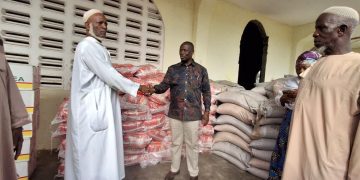May 25, 2025 – In Ghana’s evolving democratic space, the relationship between politics and the media continues to attract public interest. Over the past two decades, a notable trend has emerged: more and more politicians are acquiring or establishing media houses ranging from radio and TV stations to newspapers and online platforms. While this development raises questions about freedom of expression and access to information, it also sparks important discussions about transparency, ethics, and the future of media independence in the country.
A Shift from the Past:
Not long ago, media ownership in Ghana was mostly limited to private entrepreneurs, faith based groups, and civil society organizations. The media was widely seen as a neutral platform where political figures were scrutinized rather than represented. Back then, the journalist’s role was largely independent of political affiliation, and the media space was viewed as a public good, not a political extension.
However, in recent years, the dynamic has changed significantly. Today, it is not uncommon for individuals in active politics to own and manage media outlets. Some have even established entire media networks while holding public office or running for political positions.
Should Politicians Own Media Houses?:
This question has been a point of debate in academic, media, and civil society circles. Supporters of the practice argue that politicians, like any citizen, have the right to invest in legal businesses, including media. They believe it helps them communicate directly with the public, clarify policies, and defend their reputations in a competitive political environment.
On the other hand, many media watchers and governance advocates raise ethical concerns. When politicians own media outlets, there is a real risk of editorial interference, selective reporting, and biased news coverage. One growing concern is the withholding of government-related information such as contracts, public events, or policy updates from independent media houses. These politically owned outlets are sometimes given exclusive access or pre-information, leaving other journalists sidelined. This not only disrupts fair competition in the media space but also limits the public’s access to diverse sources of information, which is critical in a functioning democracy.
Influence and Access to Government Contracts:
Some observers believe media ownership has become more than just a communication tool it is now a means of influence. Media houses owned by politically connected individuals often enjoy easier access to government advertising, publicity contracts, and state-sponsored programs. This creates a potential conflict of interest, especially when the same media platforms are expected to report objectively on the very institutions they benefit from financially.
The concern is not whether politicians can own media houses but whether these platforms can maintain journalistic independence while also functioning as tools for political survival or financial gain.
The Impact on Independent Media and Young Creators:
For young and upcoming media entrepreneurs, the current environment can be discouraging. Many start-up media ventures struggle to access funding, advertising, and audience reach, especially when competing with politically backed media houses that have stronger networks and state connections.
This imbalance affects not only business sustainability but also content diversity. Investigative journalism, local storytelling, and alternative viewpoints may get drowned out in a media space dominated by politically affiliated voices. This limits democratic participation and deprives the public of balanced, fact-based information.
Where Do We Go From Here?:
As Ghana’s media landscape continues to expand, it is important for stakeholders including the National Media Commission, civil society, and media associations to encourage transparency in ownership, uphold editorial independence, and support the growth of non-partisan platforms.
At the same time, media consumers also have a role to play. By questioning sources, demanding fairness, and supporting ethical journalism, the public can help preserve the integrity of the media space.
Media ownership by politicians is a reality in Ghana’s democratic journey. But as with all forms of power, it must be exercised with accountability. The future of journalism, particularly in regions like Nzema and the Western Region, depends on how well we balance business interests, political ambitions, and the core mission of the media to inform, educate, and empower the public.
For more news, dialogue, and analysis on developments in Nzema and beyond, stay with Nzematoday TV.
By Nzematoday TV











